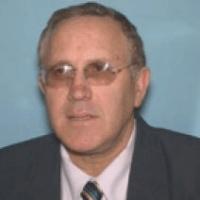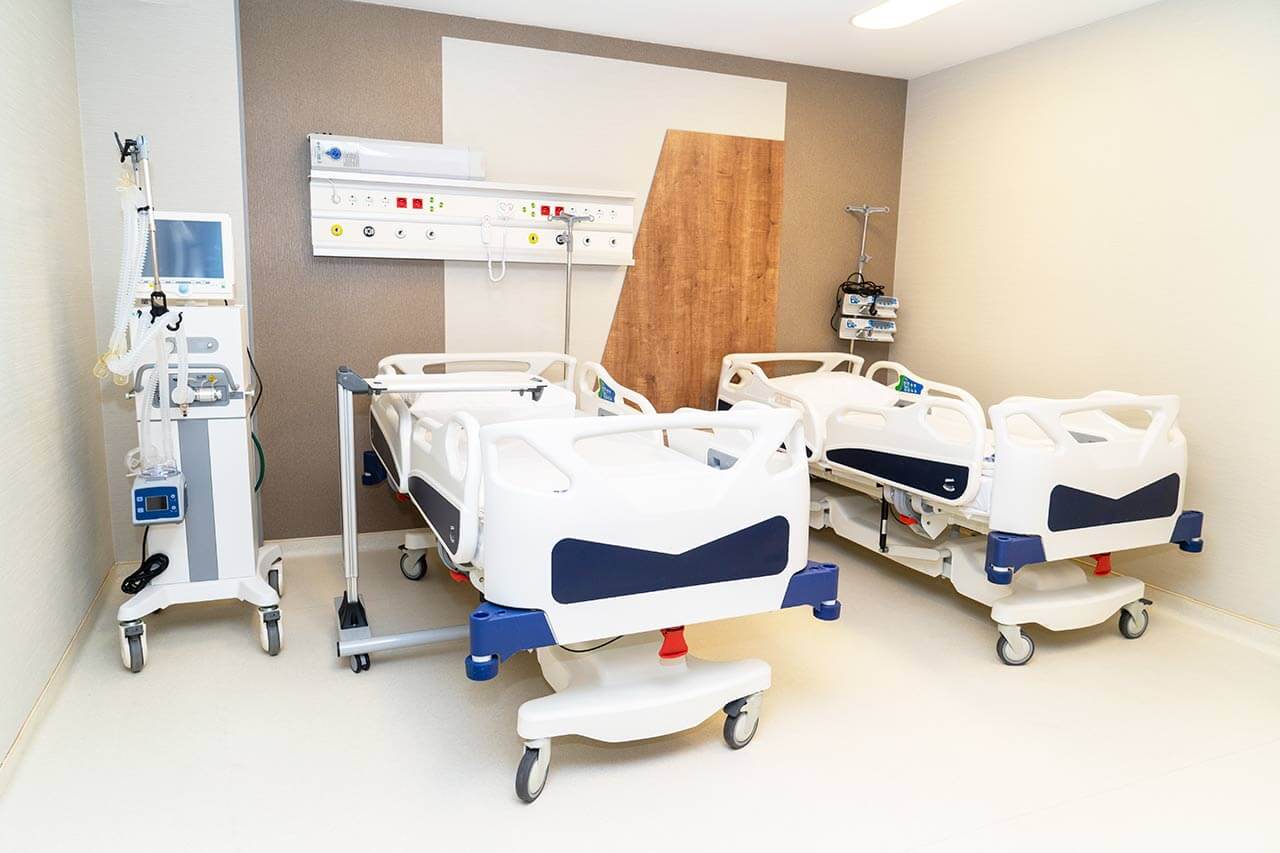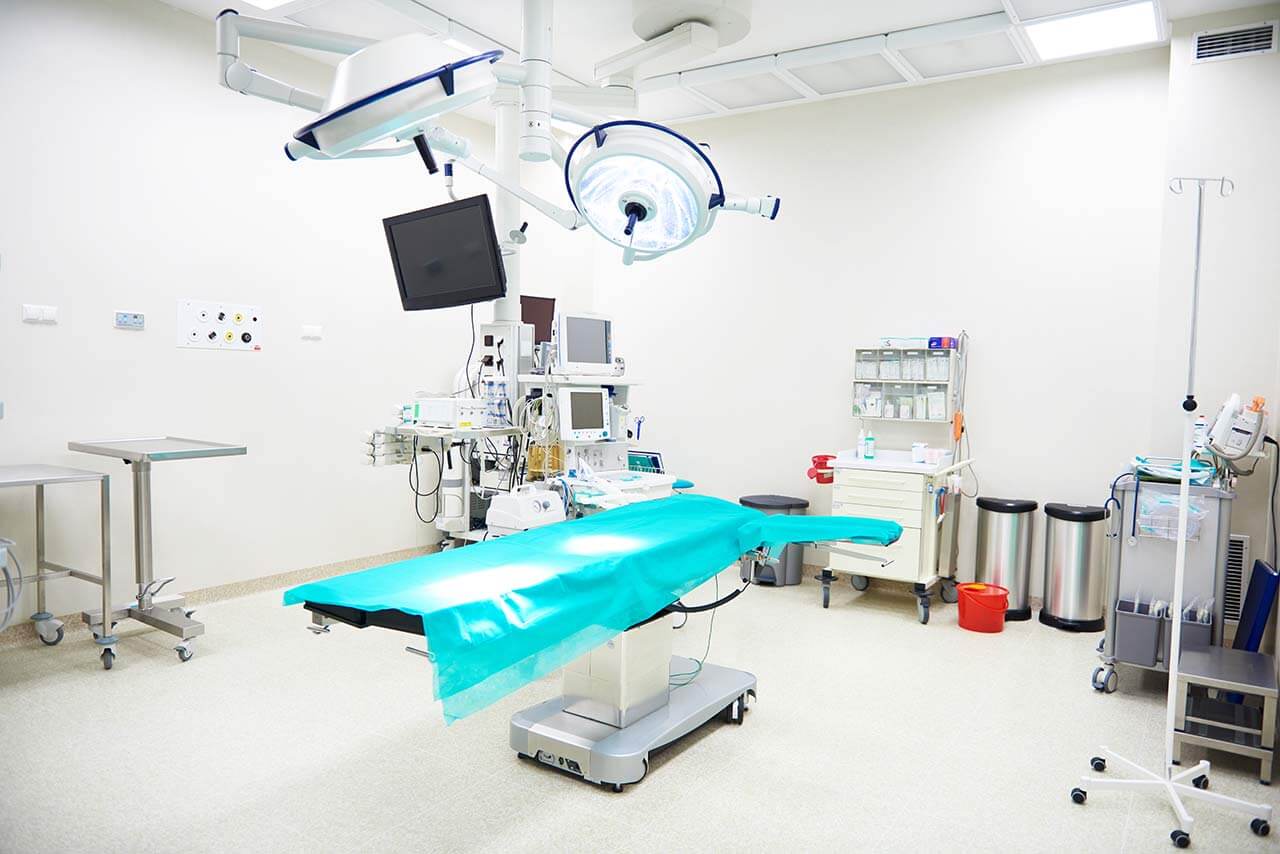
The program includes:
- Initial presentation in the clinic
- clinical history taking
- review of medical records
- physical examination
- laboratory tests:
- complete blood count
- biochemical analysis of blood
- thyroid function test (TSH-basal, fT3, fT4)
- mineral metabolism analysis (Na, K, Ca, Mg)
- lipid metabolism (HDL/LDL, cholesterol, triglycerides,
Lip(a), homocysteine) - iron content (ferritin, iron)
- blood coagulation analysis (aPTT, PT, INR)
- metabolic status (uric acid, total glucose, HbA1c)
- inflammatory parameters (CRP, ESR)
- cardiovascular disease risk markers
- lung function test (Spirometry)
- resting and exercise ECG
- vessel elasticity measurement
- Holter monitoring (24h)
- body fat and water examination
- color doppler echocardiography
- transesophageal echocardiography (tee)
- color doppler sonography of cerebral vessels
- electroconvulsive therapy (ect) under anesthesia
- symptomatic treatment
- control examinations
- the cost of essential medicines and materials
- nursing services
- full hospital accommodation
- explanation of future recommendations
Required documents
- Medical records
- ECG (if available)
Service
You may also book:
 BookingHealth Price from:
BookingHealth Price from:
About the department
The Department of Adult and Pediatric Cardiology, Cardiac Surgery at the Assuta Hospital Tel Aviv offers the full range of diagnostics and treatment of heart diseases. The Chief Physician of the department is Prof. Dr. med. Amos Katz.
The doctors of the department specialize in both conservative and surgical treatment methods. All operations are performed in advanced operating rooms, equipped with the computerized surgical systems, high-precision monitoring devices. The therapy concept is developed individually for each patient, taking into account his specific clinical indications and wishes.
Of particular interest to specialists of the department is the treatment of coronary heart disease. The department offers various effective therapeutic methods, which are selected depending on the stage of the disease and the individual characteristics of the patient. The timely initiation of therapy plays a crucial role in the case of this pathology. It is possible to achieve good result with the help of conservative therapy (drug treatment, proper diet, moderate physical activities) in the case of early treatment. At the advanced stages of the pathology, the patient develops arterial stenosis and impaired blood circulation, which complicates the treatment process. In such cases, mechanical intervention is necessary.
The diagnostic options of the department:
- Electrophysiological examinations
- Electrocardiography (ECG)
- Holter monitoring
- Ergometry (stress test)
- Echocardiography in adults and children
- Fetal echocardiography for the early detection of fetal heart defects
- Stress echocardiography
- Cardiac imaging examinations (for example, cardiac computed tomography, magnetic resonance imaging)
- Tilt test (passive orthostatic sample)
- Laboratory tests
- Comprehensive preoperative examination
- Special diagnostic program for the athletes
- Other diagnostic services
The service range of the department includes:
- Diagnostics and treatment of coronary heart disease (including the assessment of pathology risks)
- Coronary artery revascularization
- Endovascular treatment methods
- Balloon catheterization (percutaneous transluminal coronary angioplasty)
- Stent implantation (including implantation of drug-eluting stents, gradually releasing the drug)
- Coronary artery bypass grafting
- Diagnostics and treatment of congenital and acquired heart diseases
- Diagnostics and treatment of heart valve diseases
- Aortic valve replacement
- Mitral valve replacement
- Comprehensive mitral valve correction
- Fibrous ring annuloplasty
- Implantation of the artificial support ring
- Valve flap resection
- Valve flap plastic surgery
- Pericardial valve flap plastic surgery
- Tendon chord plastic surgery
- Artificial chord implantation
- Papillary muscle resection
- Mechanical and biological valve prosthetic surgery
- Tricuspid valve surgery
- Diagnostics and treatment of heart rhythm disorders (arrhythmias)
- Ablative procedures (including in children)
- Diagnostics and treatment of angina pectoris
- Diagnostics and treatment of carditis (for example, endocarditis, pericarditis)
- Diagnostics and treatment of heart failure
- Coronary artery bypass grafting
- Heart valve replacement or correction in the case of its lesion
- Surgical restoration of the left ventricle volume and shape
- Cardiac resynchronization therapy
- Heart transplantation (for the patients with acute, progressive heart failure)
- Catheter procedures (for diagnostic and therapeutic purposes)
- Monitoring of the normal development of children (cardiac aspects)
- Implantation of pacemakers, defibrillators, event recorders
- Implantation of the capsule-stimulator MICRA (innovative technique) for the patients who need implantation a single-chamber pacemaker
- Medical care for emergency cardiac conditions (in heart attacks and preinfarction conditions)
- Prophylactic measures to prevent heart diseases
- Rehabilitation programs after surgery
- Other medical services
Curriculum vitae
Education
- Study of Medicine at the Faculty of Medicine at the Ben-Gurion University of the Negev, Beersheba.
- 2004 Second Academic Degree in Health System Management, Ben-Gurion University of the Negev, Beersheba.
Internships
- 1980 - 1981 Internship, Soroka Medical Center, Beersheba.
- 1983 - 1985 Internship in Internal Medicine, Soroka Medical Center, Beersheba.
- 1985 - 1988 Internship in Cardiology, Soroka Medical Center, Beersheba.
- 1989 - 1990 Internship in Cardiac Electrophysiology, St Vincent's Clinic, Indianapolis, USA.
- 1995 - 1996 Internship in Clinical Trials, Eli Lilly and Company, Indianapolis, USA.
Positions
- Head of the Department of Cardiology, Barzilai Medical Center.
- Professor of Cardiology, Faculty of Medicine at the Ben-Gurion University of the Negev, Beersheba.
- Deputy Dean for Academic Development, Faculty of Medicine at the Ben-Gurion University of the Negev, Beersheba.
- National Commission Member of the Israeli Ministry of Health on the Prevention and Treatment of Cardiovascular Diseases.
- Member of the Medical Ethics Commission (Helsinki Commission), Barzilai Medical Center.
Achievements
- He published 82 scientific articles in Israeli and foreign medical journals, made 149 reports at scientific conferences in Israel and abroad.
- Co-author of the chapter "Atrial fibrillation" in the Textbook of Cardiovascular Diseases (TopolEJ, 1998).
- Editorial Board Member, Journal of Cardiovascular Electrophysiology.
Photo of the doctor: (c) Assuta Medical Centers
About hospital
The Assuta Hospital Tel Aviv was opened in 2009 and today it is one of the largest, modern hospitals with the highest treatment success rates in Israel. The сlinical practice is based on the use of the state-of-art technologies in the world of medicine. The compliance with the high level of medical care and cooperation with the best doctors in Israel is the cornerstone of the hospital’s work and a long tradition of Assuta.
The main clinical focuses of the medical facility include cardiology, neurosurgery, orthopedics, surgery, oncology, gynecology, urology, gastroenterology, reproductive medicine, bariatrics, rehabilitation, etc.
The hospital has 16 state-of-the-art operating rooms, more than 200 beds, resuscitation units, and 2 monitoring laboratories, as well as one of the largest Imaging Diagnostic Centers and the ultramodern Cancer Center.
The hospital was awarded the prestigious certificate of the Joint Commission on Accreditation of Healthcare Organizations for its compliance with high standards of quality and safety of medical care.
Photo: (с) depositphotos
Accommodation in hospital
Patients rooms
The patients of the Assuta Hospital Tel Aviv live in comfortable spacious rooms of a five-star hotel level. The patient rooms are designed in bright colors and equipped with air conditioning, cable TV and other amenities. The rooms have a computer connected to the Internet. In addition to hospital wards, there are also hotel rooms for friends and relatives accompanying the patient, a library, a lecture hall, a recreation room, a prayer house for patients of all religions. On the territory of the hospital there are shops and cafes, where one can drink a cup of aromatic coffee or tea and have a snack.
Meals and Menus
The patients of the hospital are offered a balanced delicious three meals a day: breakfast, lunch and dinner. There are several menus to choose from, including a dietary one.
Further details
Standard rooms include:




